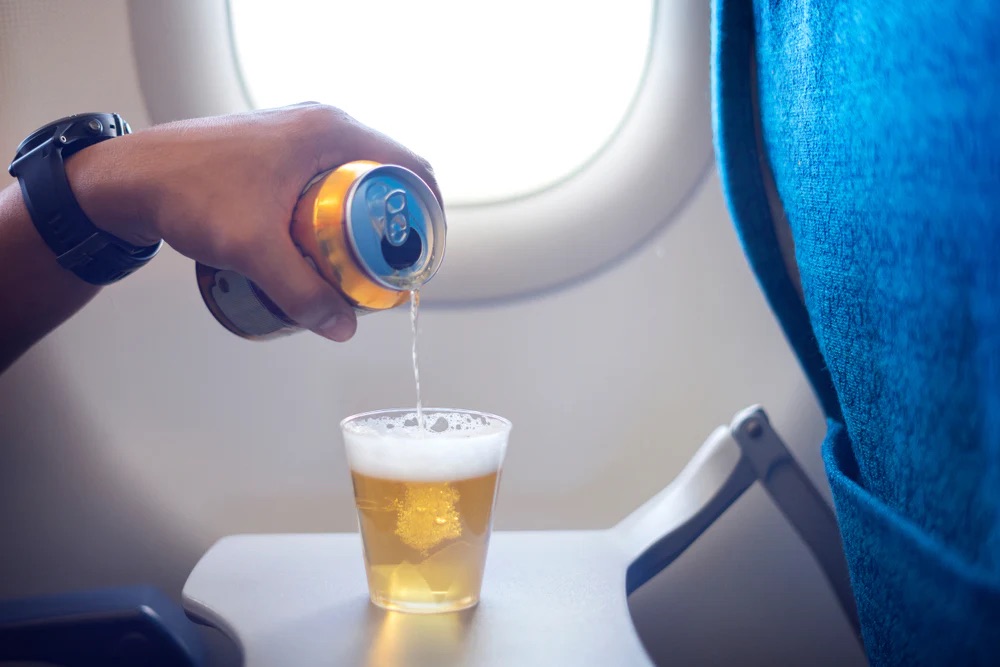Vacationing is often filled with joy, and many people celebrate with a drink before taking a nap on a flight.
However, a recent study suggests reconsidering this habit.
Researchers in Germany have found that combining alcohol consumption with the cabin pressure at high altitudes can stress the hearts of sleeping passengers.
The study indicated that sleeping after drinking alcohol in the reduced air pressure of a flight leads to decreased blood oxygen levels and increased heart rates, even in young and healthy individuals.
“The impact was unexpectedly pronounced,” said Dr. Eva-Maria Elmenhorst, co-author of the study, in an interview with NBC News, a partner of Sky in the US. She recommended, “It’s best to avoid alcohol on flights.”
In an article published in the journal Thorax, scientists noted that travelers with cardiac conditions could experience worsened symptoms due to the lower cabin pressure at high altitudes, especially while sleeping.
The study also found that alcohol, often consumed during flights, has similar effects.
Experts from Germany’s Institute of Aerospace Medicine suggested that the risks associated with drinking alcohol on flights are often underestimated and could be easily avoided. They recommended reconsidering policies to limit the availability of alcoholic beverages on airplanes.
The study examined the effects of alcohol and sleep in a low-pressure environment, involving 48 participants aged 18 to 40, over two nights in different settings: a sleep lab and an altitude chamber.
Alcohol was consumed before one of the nights. Dr. Elmenhorst noted that while young, healthy individuals are unlikely to experience significant cardiac harm from in-flight drinking, the reduced oxygen saturation and increased heart rate could exacerbate existing health issues. The study found that the combination of alcohol and low oxygen levels at high altitudes reduced sleep quality, strained the heart, and prolonged periods of low blood oxygen.
The researchers concluded that even for young, healthy individuals, mixing alcohol consumption with sleep in low-pressure conditions significantly taxes the heart and could worsen symptoms in those with heart or lung conditions.
Dr. Elmenhorst observed a substantial drop in oxygen saturation during sleep, leading her to recommend against alcohol consumption during flights, regardless of health status.
